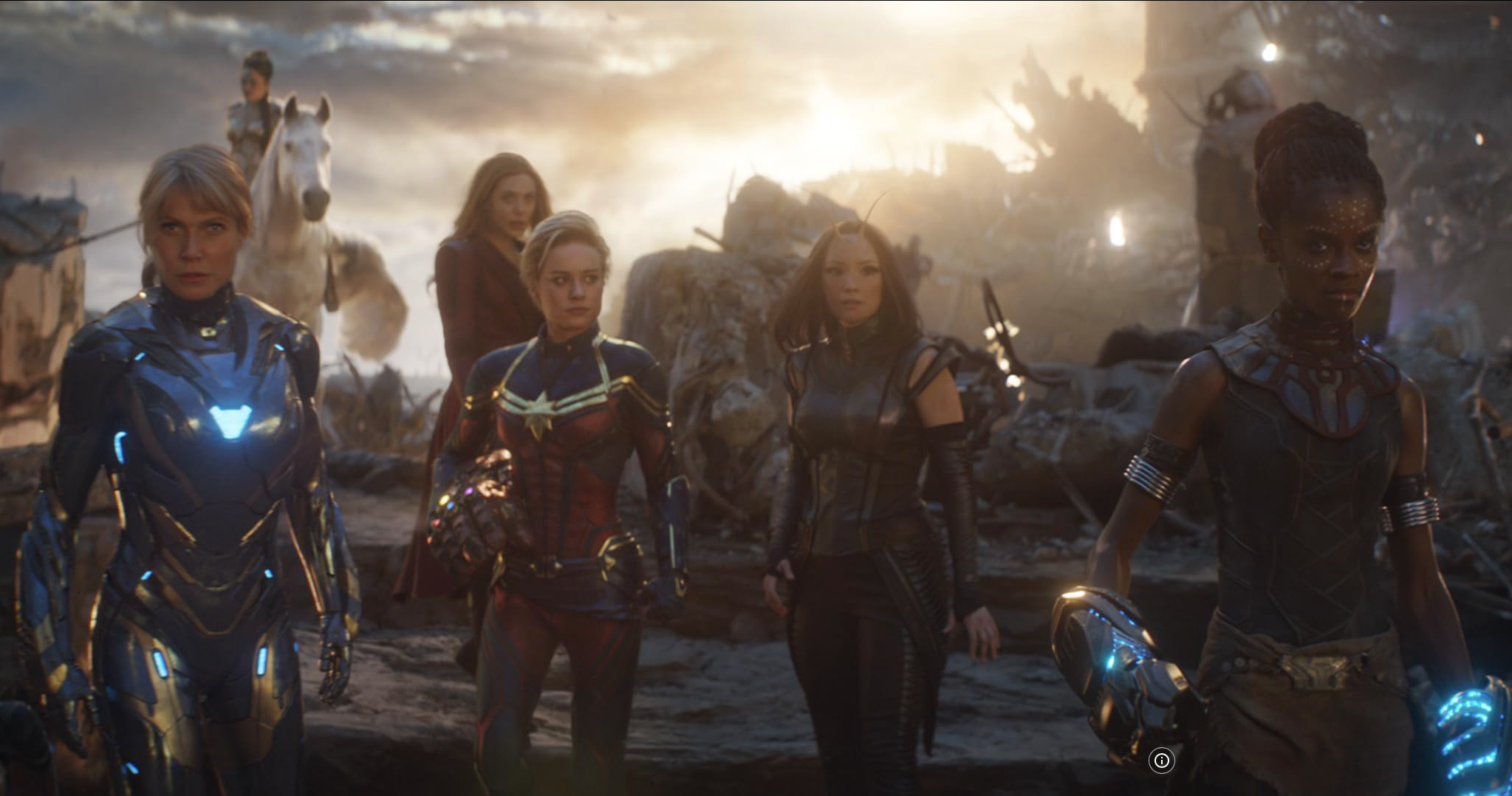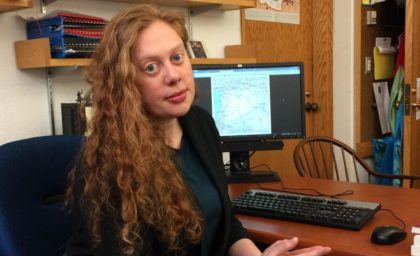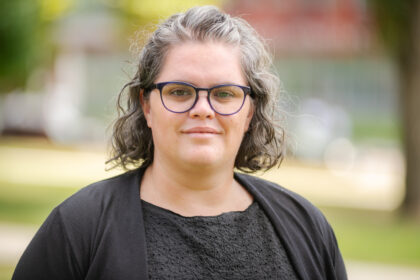Challenge. Change.
When superpowers are super imbalanced

Amid an intense combat scene in the 2019 film “Avengers: Endgame,” a group of female superheroes work together to pass the infinity gauntlet across a chaotic battlefield in a desperate attempt to defeat the villain Thanos and prevent worldwide destruction.
Political science Professor Ora Szekely suspects filmmakers intended that scene to be an empowering visual of women heroes supporting one another. To Szekely, something else stood out: The women heroes of the Marvel Cinematic Universe could easily fit together on the screen in unison. She says it’s an example of the imbalanced depictions of male and female fighters in the first three phases of the MCU.
“I remember watching this and thinking, there are hundreds of male heroes fighting in the background, and they managed to get all of the female heroes in one power shot,” says Szekely. “I think it doesn’t necessarily send the message they were going for.”
This fictional world is under the microscope in “The Politics of the Marvel Cinematic Universe,” a book in which 25 scholars provide an expansive analysis of messages about government, public policy, and society within the first three phases of the superhero movie franchise. Two Clark professors contributed to the book.
In the chapter “Female Combatants in the Marvel Cinematic Universe,” Szekely explores how women heroes are portrayed differently than their male counterparts. The movies reflect gendered ideas about why women partake in combat — ideas that are often inaccurate, she says.
Political science professor Danielle Hanley examines the Avengers as a departure from the nuclear family unit in her chapter, “Avengers, Assemblage.” Hanley argues that the Avengers are more than just a group of superpowered colleagues.
“I’m arguing that the Avengers is a family and I’m using a lot of queer theory and feminist theory to do that,” she says. “I’m thinking about the objects and the structures and the institutions that exist and are part of informing what a family is. I argue that Thor’s hammer and non-human characters are a part of the family assemblage.”
Challenge. Change. is produced by Andrew Hart and Melissa Hanson for Clark University. Listen and subscribe on Spotify or Apple Podcasts. Find other episodes wherever you listen to podcasts.




